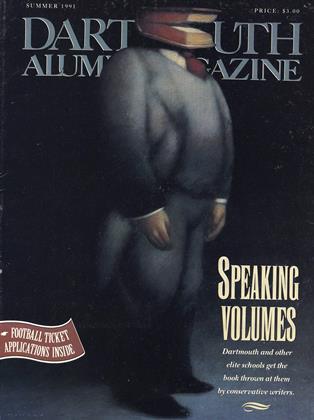• Isaac Asimov, I, Robot (Fawcett, 1950) The book is unfortunately out of print, but its contents have been reprinted within other collections by Asimov. In this classic set of science fiction stories, robots cause trouble even after being carefully programmed with ethical laws.
• David Bellin and Gary Chapman, Computers in Battle (Harcourt Brace Jovanovich, 1987) The authors examine the role and limitations of computer weapons, including whether SDI, as originally conceived, could ever work.
• David Burnham, The Rise of theComputer State (Random House, 1983) A former New York Times reporter describes real situations involving issues of privacy and surveillance. A book guaranteed to generate outrage.
• Hubert L. Dreyfus and Stuart E. Dreyfus, Mind over Machine (The Free Press, 1986) The authors make an interesting, though not totally convincing, case for the limitations of expert computer systems and, consequently, for how computers should and should not be used in education, management, and other expert domains.
• Tom Forester and Perry Morrison, Computer Ethics (MIT Press, 1990) A consciousness-raiser that is filled with up-to-date tales of malfunctions and misuses of computers.
• Deborah G. Johnson, ComputerEthics (Prentice-Hall, 1985) This short, readable, classic covers the fundamental issues of property, privacy, and power as they pertain to computing and addresses special professional concerns of malpractice and codes of ethics.
• Clifford Stoll, The Cuckoo's Egg (Doubleday, 1989) An incredible but true story of how an astrophysicist stalks and traps a spy ring engaged in computer espionage. *
 View Full Issue
View Full Issue
More From This Issue
-
 Feature
FeatureThe Higher-Ed Book Biz
June 1991 By Robert Sullivan '75 -
 Feature
FeatureBeyond Black And White
June 1991 By Timothy J. Burger '88 -
 Feature
FeatureBUG SLAYER
June 1991 By Nancy Freiberg -
 Article
ArticleDR. WHEELOCK'S JOURNAL
June 1991 By "E. Wheelock" -
 Article
ArticleCOMPUTING AND THE RING OF INVISIBILITY
June 1991 By Professor James Moor, Karen Endicott -
 Article
ArticleThe Alumni Awards
June 1991







